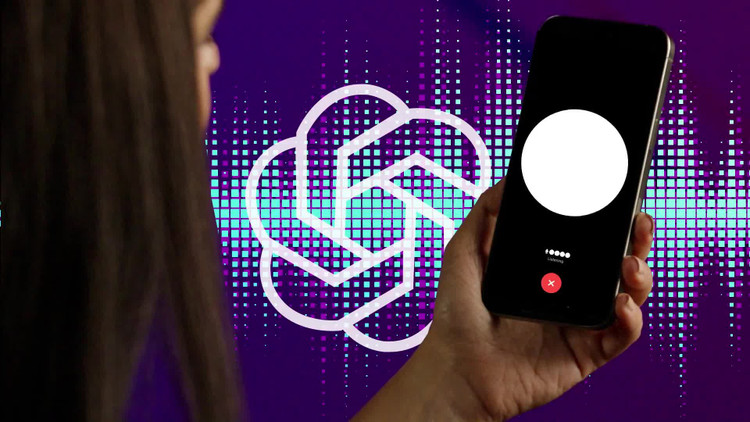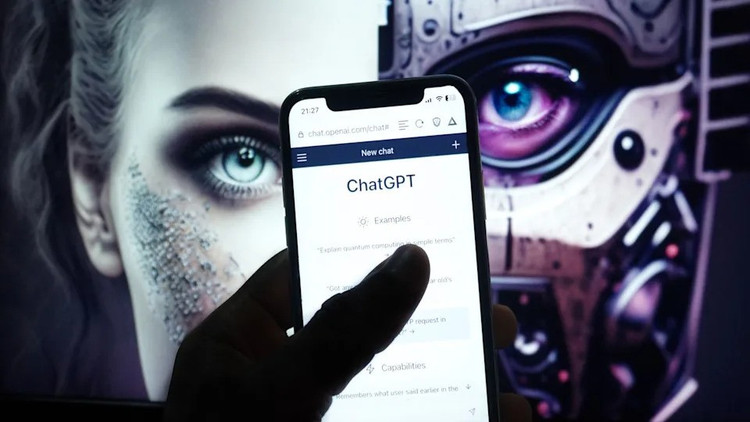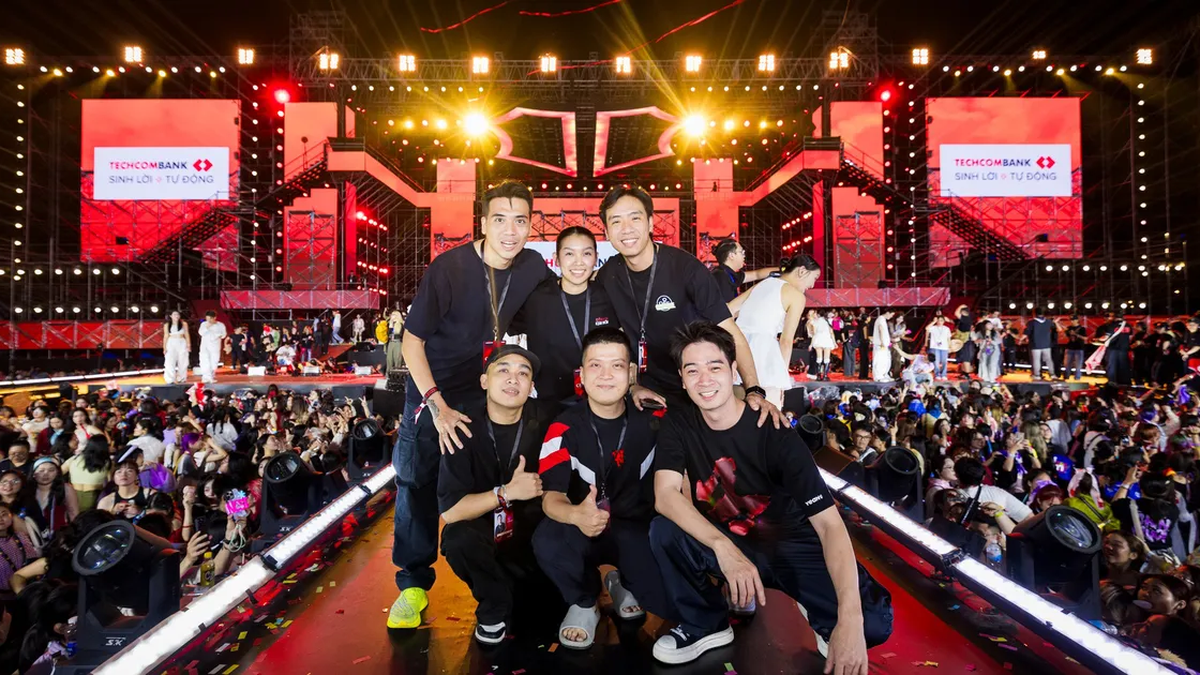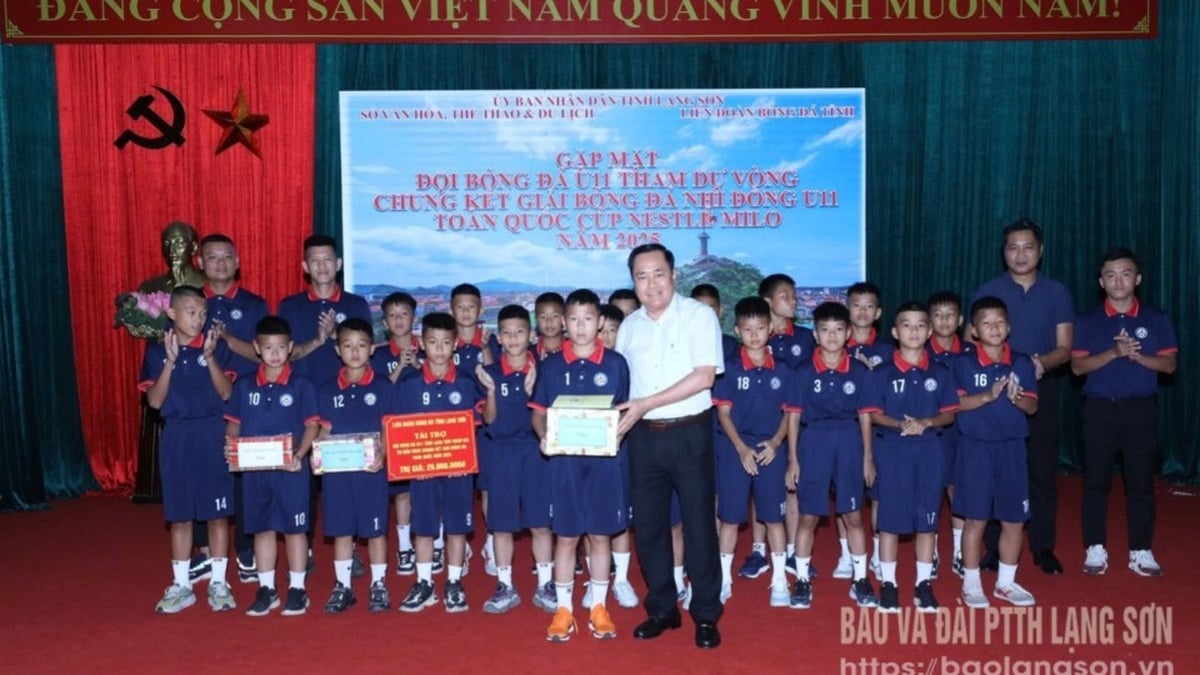For better or worse, the rise of ChatGPT as a writing tool, search engine, or chat companion has dramatically changed the way we communicate with each other and with technology.
At the same time, the widespread use of ChatGPT has also sparked a lot of online debate about whether it is possible to detect AI-generated content by looking at certain signs.
But new research suggests that such AI signals may become increasingly harder to recognize as humans start talking more like ChatGPT, rather than the other way around.

When using ChatGPT on a daily basis, people form language habits similar to the AI Chatbot's style. Photo WSJ
Researchers at the Max Planck Institute for Human Development in Germany found that in the 18 months since ChatGPT launched, so-called “GPT words” have increased significantly in frequency of use among users.
Previous studies have found that ChatGPT affects human written communication, but researchers are curious whether the development of AI will impact the way we speak.
In the study, the researchers uploaded millions of pages of emails, essays, academic papers, and news articles to ChatGPT, then asked the AI to “edit” the text. They then identified a number of words that ChatGPT seemed to favor, such as “delve,” “realm,” or “meticulous”—naming them “GPT words.”
Finally, they tracked the frequency of GPT words appearing in more than 360,000 YouTube videos and 771,000 podcast episodes before and after ChatGPT launched. The paper, posted on the preprint server arXiv , has not yet been peer-reviewed.
Even with controls to account for synonyms or prewritten content, the researchers found that GPT words actually became more prominent in spoken English. It appears that a cultural feedback loop has emerged between English-speaking humans and the AI.
“The patterns stored in AI technology seem to be propagating back into the human mind,” study co-author Levin Brinkmann told Scientific American. “It’s natural for humans to imitate each other, but we don’t imitate everyone around us equally,” he added. “We tend to copy what others are doing if we perceive them as knowledgeable or important.”
AI is increasingly viewed as a cultural authority, in which “machines, initially trained on human data and then given their own cultural traits, can significantly reshape human culture,” the authors write in the study.
“‘Delve’ is just the tip of the iceberg,” Brinkmann told the Verge. Other commonly used words in GPT include “underscore,” “understand,” “support,” “show off,” “agile,” “investigate,” “meticulous,” and “disruptive.”
The study offers some interesting insights, but there are also a few caveats. First, the researchers analyzed data from a specific set of GPT models: GPT-4, GPT-3.5-turbo, GPT-4-turbo, and GPT-4o.

In an effort to make AI "human-like", humans have also become... AI-like. Photo: YHN
This ties the research to these specific versions of ChatGPT. OpenAI will undoubtedly introduce new models in the coming months and years, and these upcoming versions will likely represent new patterns of language use and word preferences. As a result, this research could quickly become outdated.
It's also unclear whether ChatGPT will actually have a significant impact on more common forms of spoken language, especially since the researchers collected a large amount of data from academic sources.
Furthermore, language and word usage evolve over time due to many different factors; while ChatGPT may have contributed a small part to changes in the way we use words, it is important to point out the many other sources in society and culture that contribute to language change.
AI is penetrating our subconscious, shaping the language patterns that allow us to communicate with each other. What that means for humans remains to be seen. In the meantime, however, experts warn that we should keep a close eye on AI's impact on culture, communication, and more.
00:00
00:00
Read more
But new research suggests that such AI signals may become increasingly harder to spot—as we start talking more like ChatGPT, not the other way around.
Researchers at the Max Planck Institute for Human Development in Germany found that in the 18 months since ChatGPT launched, so-called “GPT words” have increased significantly in frequency of use among users. Previous studies have found that ChatGPT affects human written communication, but the researchers were curious whether the development of AI would impact the way we speak.
Source: https://khoahocdoisong.vn/con-nguoi-dang-bat-dau-noi-chuyen-giong-voi-chatgpt-post1555140.html




















































![[Maritime News] More than 80% of global container shipping capacity is in the hands of MSC and major shipping alliances](https://vphoto.vietnam.vn/thumb/402x226/vietnam/resource/IMAGE/2025/7/16/6b4d586c984b4cbf8c5680352b9eaeb0)













































Comment (0)